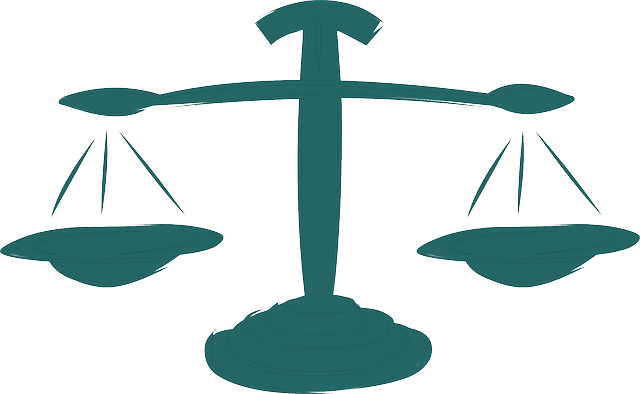Antitrust laws are vital for promoting fair competition and protecting consumers from anti-competitive practices like price-fixing, market division, and abuse of dominant positions. Examining libel case examples in civil court provides insights into the enforcement of these regulations, ensuring a level playing field. Key violations include cartel formation, merger practices, exclusive dealing contracts, and misleading advertising. Successful antitrust lawsuits require demonstrating monopolistic behavior or predatory pricing strategies. High-profile cases have reshaped global business competition, leading to increased regulatory actions. Companies should implement compliance measures and seek expert legal counsel for defense against antitrust investigations, leveraging libel case examples in civil court for strategic defense planning.
“Antitrust violation cases are a crucial aspect of maintaining fair competition in the business landscape. This comprehensive guide explores the intricate world of antitrust laws, their purpose, and the behaviors that often lead to violations. From understanding key case elements to examining notable historical incidents, we delve into strategies for prevention and response. Learn from real-world examples, including compelling libel case scenarios in civil courts, to stay informed about the dynamic field of antitrust litigation.”
- Understanding Antitrust Laws and Their Purpose
- Common Behaviors That Lead to Antitrust Violations
- Key Elements of an Antitrust Case
- Notable Antitrust Violation Cases in Recent History
- Preventing and Responding to Potential Antitrust Issues
Understanding Antitrust Laws and Their Purpose

Antitrust laws are designed to promote fair competition in the marketplace by preventing businesses from engaging in anti-competitive practices that restrict trade and harm consumers. These laws aim to ensure a level playing field for all companies, fostering innovation, lower prices, and better quality goods and services. Understanding antitrust regulations is crucial, especially in high-stakes cases where corporate and individual clients might be involved. By examining various libel case examples in civil court, we can gain insights into how these laws are interpreted and enforced throughout the investigative and enforcement process.
The purpose of antitrust legislation is to safeguard economic freedom by curbing monopolistic behaviors and preventing the formation of cartels or trusts that could distort market forces. These laws not only protect consumers from exploitation but also encourage competition, which drives progress and growth in various industries. In many cases, the initial stages of an investigation involve gathering evidence of anti-competitive conduct, such as price-fixing, market division, or abuse of dominant market position. This comprehensive approach ensures that all aspects of antitrust violations are thoroughly examined, leading to appropriate remedies for harmed parties.
Common Behaviors That Lead to Antitrust Violations

In the realm of antitrust law, certain behaviors consistently lead to violation cases, making them key areas of focus for legal experts. One common practice is the formation and maintenance of cartels, where businesses collude to manipulate prices, divide markets, or fix bids. These agreements subvert market competition, ultimately harming consumers. Another frequent violation involves mergers and acquisitions that result in reduced competition. When companies merge without proper regulatory approval, it can lead to monopolistic practices, limiting consumer choice and driving up costs.
Moreover, exclusive dealing contracts, where a company is required to purchase all its requirements from one supplier, can stifle market growth and innovation. This practice hinders customers’ ability to switch providers and encourages higher prices. Additionally, certain forms of advertising and marketing strategies may cross the line into illegal territory if they mislead consumers or artificially inflate product values. For his clients, whether corporate or individual, understanding these behaviors is crucial for achieving extraordinary results in antitrust cases, especially when navigating complex legal landscapes involving libel case examples in civil court.
Key Elements of an Antitrust Case

When discussing key elements of an antitrust case, it’s essential to understand the core principles that define such legal battles. Antitrust litigation focuses on restraining trade and commerce, which can lead to significant harm for consumers, philanthropic and political communities, and the economy at large. A successful antitrust case must prove that a defendant or group has violated competition laws, often through actions like forming a monopoly, engaging in price-fixing, or employing predatory pricing strategies.
For instance, consider libel case examples in civil courts where individuals or entities are accused of spreading false information to harm competitors. These cases mirror antitrust violations by aiming to stifle free market dynamics and create an unfair playing field. A general criminal defense strategy might differ from an antitrust case, as the latter often involves complex economic analyses and a deep understanding of market forces. Avoiding indictment is crucial in these scenarios, which necessitates a meticulous approach to evidence presentation and legal arguments.
Notable Antitrust Violation Cases in Recent History

In recent history, several notable antitrust violation cases have made headlines, shaping the competitive landscape for businesses worldwide. These high-profile incidents serve as powerful examples of how anti-competitive practices can harm both consumers and the broader economy. One such case involves a tech giant accused of abusing its market dominance to stifle innovation and competition. By leveraging its dominant position in the market, the company allegedly engaged in exclusive dealing agreements and created barriers for smaller competitors, limiting consumer choice and driving up prices.
Another compelling libel case example in the civil court emerged from the pharmaceutical industry. A prominent drug manufacturer was sued for engaging in anticompetitive pricing strategies, where they set artificially high prices for essential medications, hindering access for patients and healthcare providers alike. These cases highlight the far-reaching consequences of antitrust violations and have led to increased scrutiny and regulatory actions by governments worldwide, ensuring fair competition and protecting the interests of both consumers and philanthropic and political communities.
Preventing and Responding to Potential Antitrust Issues

Preventing and responding to potential antitrust issues is crucial for both corporate and individual clients navigating complex business landscapes. Companies must stay vigilant against practices that could be construed as anti-competitive, such as price-fixing, market allocation, or abusive use of market power. Regular internal audits, robust compliance programs, and employee training can help identify and mitigate risks early on.
In the event of an antitrust investigation, having a strategic defense plan is essential. Experienced legal counsel specializing in white-collar and economic crimes can guide clients through the process, ensuring they understand their rights and obligations. By studying relevant libel case examples in civil court, companies can learn effective strategies for challenging allegations and securing winning challenging defense verdicts.
Antitrust violation cases serve as a crucial reminder of the importance of fair competition in the marketplace. By understanding the laws and their purpose, recognizing common behaviors leading to violations, and familiarizing ourselves with notable examples like libel case scenarios in civil courts, we can actively prevent and respond to potential issues. Equipped with this knowledge, businesses and individuals can ensure they navigate the competitive landscape ethically, fostering a more robust and equitable economic environment.






